
If at all possible, pre-mounting will give the best results at the pattern plate
Have you ever considered patterning your gun? Some shooters will have done this many times, but most don’t – and many will have no understanding of what I’m talking about! Patterning your gun is actually a very interesting exercise, and, dare I say, an enjoyable process, that entertained correctly will give incredibly useful data relating to your gun and cartridges.
To pattern your gun is merely to fire your gun at a large metal plate. Then, the behaviour of the shot or ‘pellets’ can be visually examined, due to their indentation on the plate’s surface. The plate itself usually comes in the guise of a large sheet of metal, fixed to two large timber or metal posts, something resembling that of a large roadside sign, albeit without wording!
The more traditional set-up will have a large trough at the base, an old livestock water feeder for example. This would be filled with a white liquid, say water mixed with powdered chalk or hydrated lime. A mop is used to whitewash the plate prior to every take, thus creating a blank surface for each individual shot. The modern arrangement is to clip large sheets of plain paper to the plate. The latter allows the shooter to collect and collate patterns for future reference.
Most cartridge brands produce their own pattern cards, including a blank data box, on which the user can record cartridge brand, size, choke size, distance and so on. This is invaluable when patterning different brands with matching size and weight for comparison.
This story is from the May 2020 edition of Sporting Shooter.
Start your 7-day Magzter GOLD free trial to access thousands of curated premium stories, and 9,000+ magazines and newspapers.
Already a subscriber ? Sign In
This story is from the May 2020 edition of Sporting Shooter.
Start your 7-day Magzter GOLD free trial to access thousands of curated premium stories, and 9,000+ magazines and newspapers.
Already a subscriber? Sign In
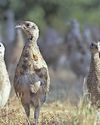
RSPB gives mixed message on shooting
Having recently attended the RSPB’s virtual AGM, Conor O’Gorman discusses the outcome of the charity’s year-long review of game bird shooting

Causeway for concern
Alan Jarrett’s renewed interest in reading takes him down memory lane to an offshore island duck flight that very nearly ended in disaster

Through a purple patch
The Garrows Estate is taking a conservation-focused approach to restoring the wildlife populations and biodiversity on the Scottish heather moorland.
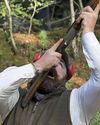
When the wheels fall off
Losing form on a day’s shooting can be infuriating, especially if you’ve been shooting like a god up to that point. Simon O’Leary looks at some common causes and how to remedy them

Beaches, books & bad behaviour!
The annual Kay family vacation to Northumberland offers a chance to give the cockers a blast on the beach – although they don’t always shower themselves in glory, as Ryan Kay recalls...
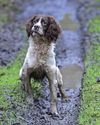
Using the Stop whistle
Now you’ve instilled the basics, it’s time to up the ante with some more tricky distance work. Howard Kirby explains how to take the core Stop whistle command to the next level
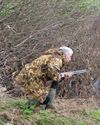
The humble teal
They may be tiny, but as far as Rupert Butler is concerned, the appeal of this little duck is huge. He recalls some of his most memorable nights in pursuit of these aerial acrobats
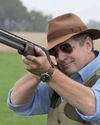
Fab all-rounder
Mike is impressed with the Fabarm Elos B2 Field Notte, which offers great value for money, is suited to fieldwork or clays and is future-proofed for use with steel in all choke constrictions

CALL OF THE WILD
Dom Holtam reconnects with one of the purest forms of shotgun shooting as he walks-up woodcock over pointing dogs in the Scottish Highlands
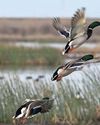
A yen for the Fens
Tony Jackson recounts a memorable duck flight over an area of Fenland in Norfolk with his friend and author, the late Alan Savory